Titanium in Body Piercing:
The Ultimate Material for Safe Healing and Lasting Comfort
Why Material Choice Can Make or Break Your Piercing
When you decide to get a piercing, you’re not just adding a piece of jewelry — you’re undergoing a body modification that involves healing tissue. In this delicate stage, the material used for your jewelry becomes critically important. A poor-quality metal can delay healing, cause inflammation, or trigger allergic reactions. That’s why professional piercers emphasize choosing the safest possible material from the very beginning.
Among all available options, titanium stands out for its excellent compatibility with the human body, making it the leading recommendation for initial piercings.
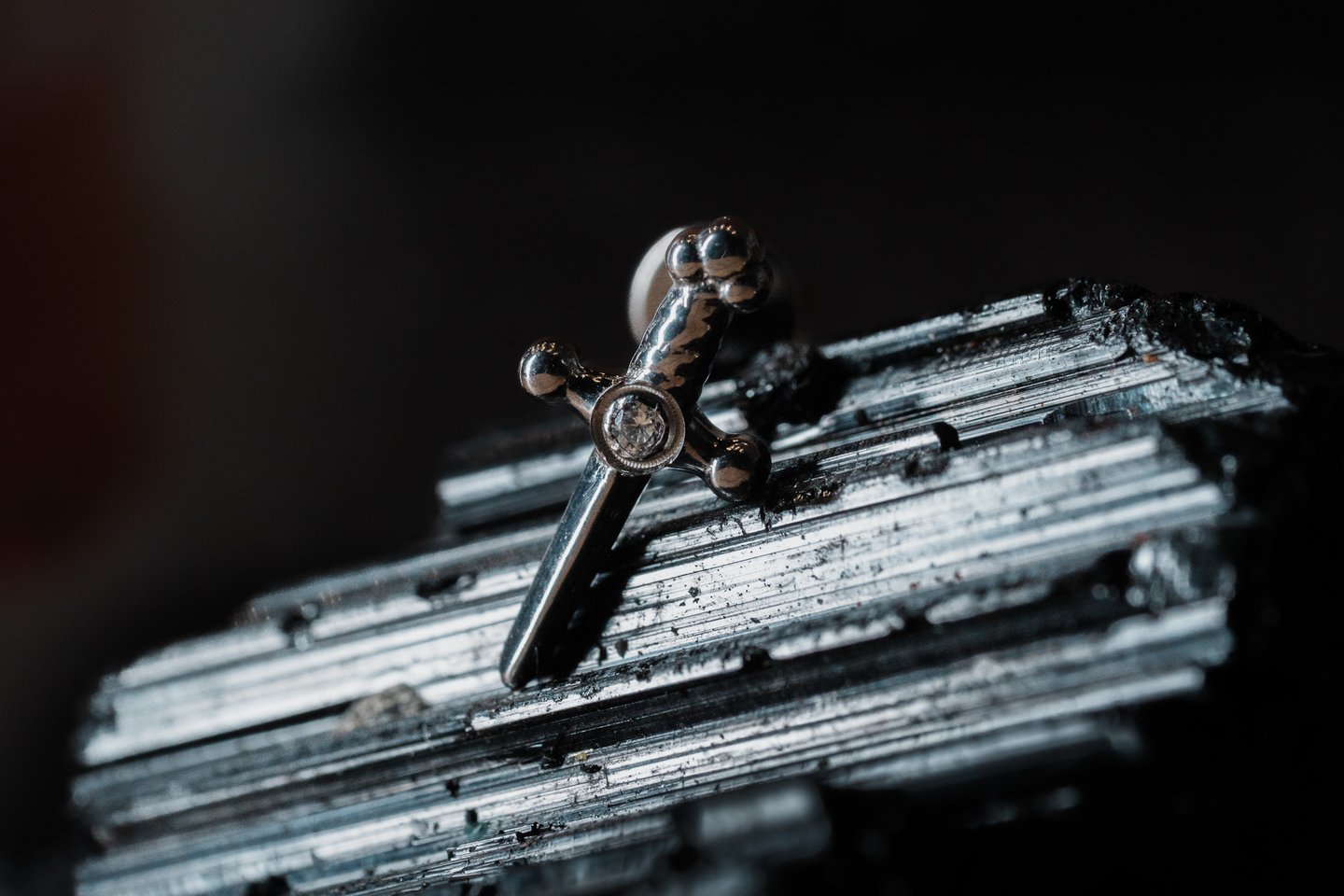
What Makes Titanium So Reliable?
Titanium is a premium metal commonly used in surgical implants and medical devices.
It’s known for being lightweight, strong, and biologically inert — meaning the body accepts it without an immune response. Jewelry made from implant-grade titanium, such as ASTM F136 or F1295, meets strict health and safety standards. It doesn’t release nickel, doesn’t rust, and won’t interact with skin or bodily fluids.
The result? Fewer complications, less discomfort, and a piercing that heals efficiently and cleanly.
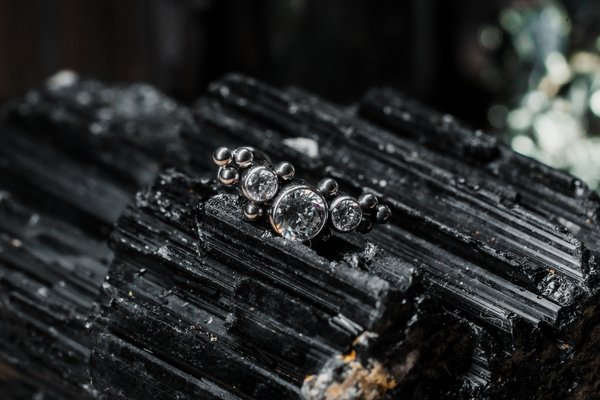
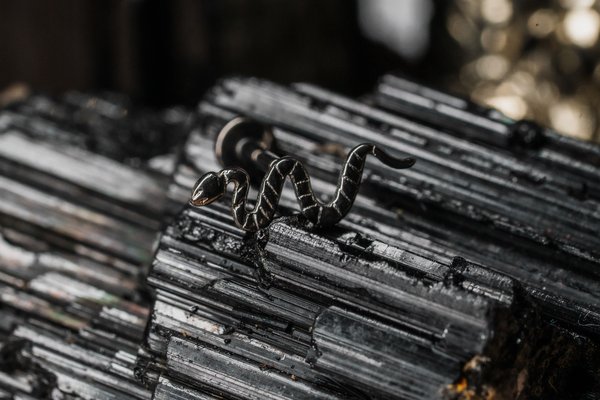
The Key Benefits of
Titanium Piercing Jewelry
- Completely Hypoallergenic
Titanium contains no nickel, making it suitable for individuals prone to metal allergies or skin sensitivities. - Smooth Healing Experience
Its ultra-polished surface reduces irritation and friction against the skin, allowing the wound to close naturally and without disruption. - Exceptional Strength Without the Weight
Despite its durability, titanium is surprisingly light — it doesn’t strain the tissue or cause sagging in delicate areas. - Customizable Appearance Through Anodizing
Titanium can be anodized into a range of bright or subtle hues without using harmful dyes or coatings. - Built to Last
Corrosion-resistant and unaffected by moisture or sweat, titanium jewelry is made for longevity and everyday wear.
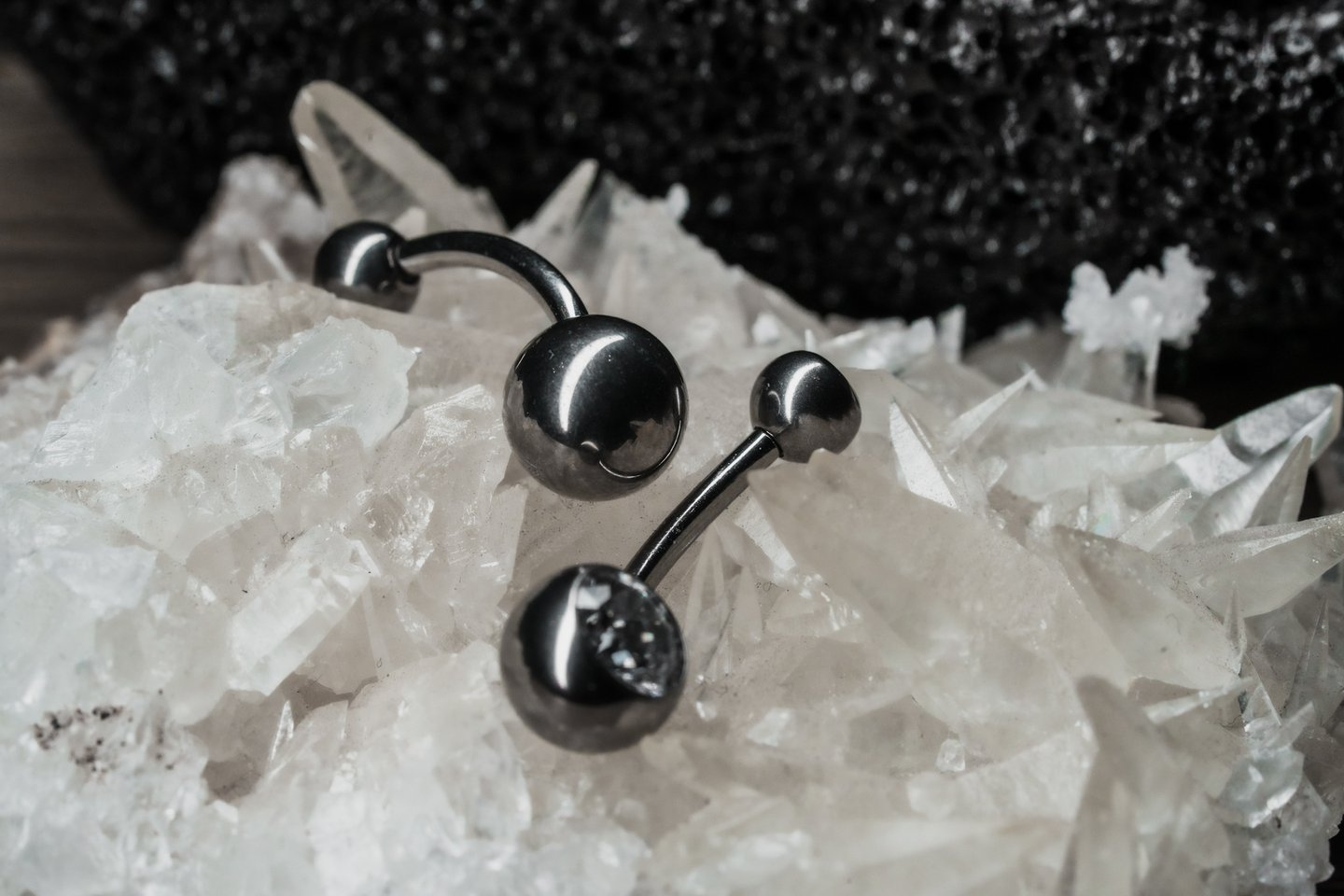
Titanium vs. Other
Piercing Materials
Here’s how titanium compares with other common metals used in body jewelry:
- Surgical Steel (316L)
Often used for healed piercings, steel does contain trace amounts of nickel — a problem for sensitive individuals. It’s also heavier than titanium and less suitable for fresh piercings. - Gold (14–18K)
While attractive and often seen as premium, gold is soft and can easily bend or become contaminated if not pure. It’s not ideal for healing piercings. - Niobium
A good alternative that shares many properties with titanium, though it's heavier and less commonly certified for implant use. - Silver
Highly reactive and prone to tarnishing, silver can cause staining or infection in a fresh wound. It’s generally not used for initial piercings. - PTFE/BioFlex (Plastic)
Flexible plastics may work in specific cases but offer less durability and sterility than titanium. They’re usually chosen for temporary or medical reasons.
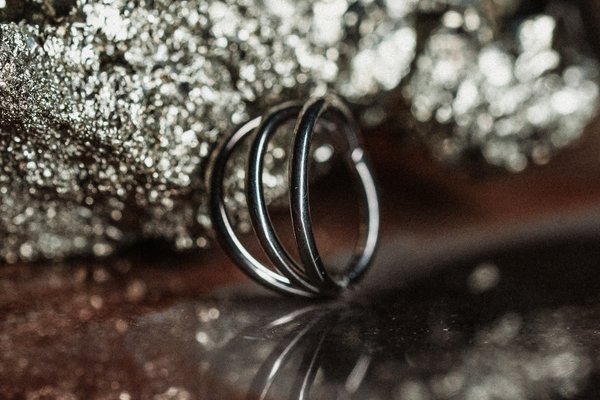
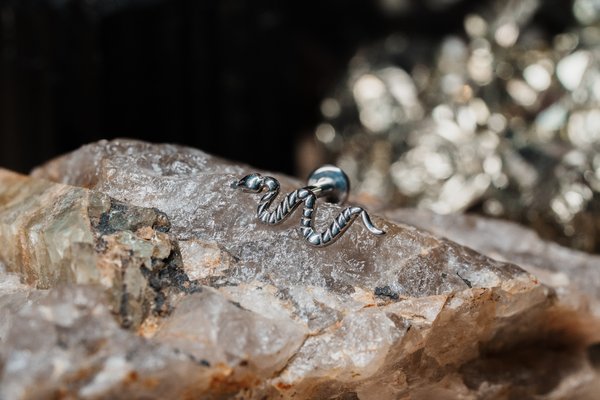
Why Titanium Is the
First Choice for New Piercings
Healing skin requires protection, not irritation.
Titanium offers exactly that — it’s clean, stable, and doesn’t trigger immune responses. Because it’s so light, it doesn’t weigh down tissue or shift during movement, making it especially comfortable in tricky or sensitive areas.
Most importantly, it creates an environment where the body can focus on healing, not defending itself from a harmful material.
How to Recognize High-Quality Titanium Jewelry
To ensure you’re getting a safe product, look for:
- Markings like ASTM F136 or F1295, which indicate implant-grade titanium
- Jewelry that’s sealed and pre-sterilized in individual packaging
- Flawless finishing — no rough edges, burrs, or uneven surfaces
Choosing the right piece means protecting your health from day one.
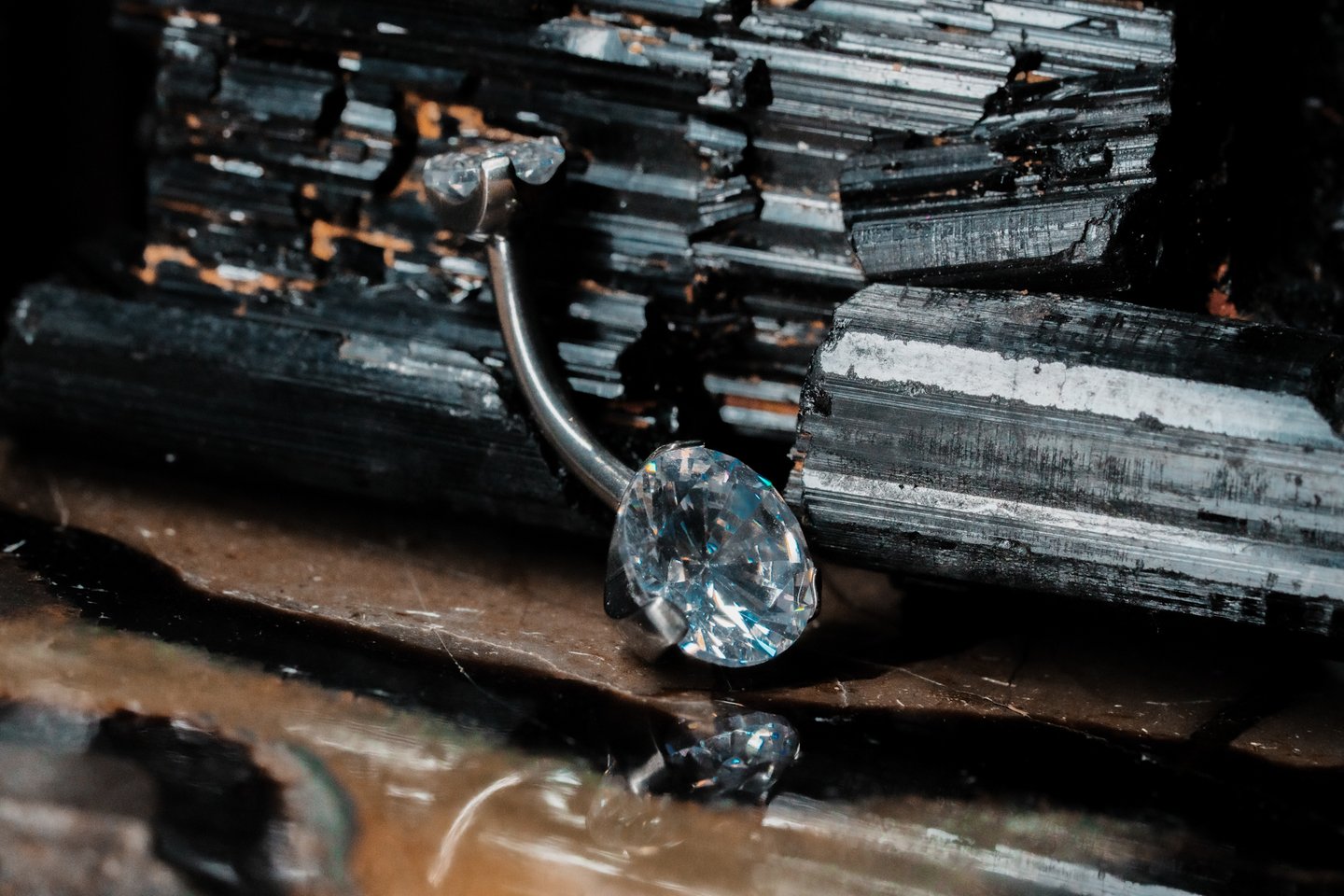
How to Care for Titanium Jewelry
Titanium doesn’t require complicated care.
During the healing period, follow these simple guidelines:
- Clean the piercing gently using a saline solution
- Avoid harsh products like alcohol or hydrogen peroxide
- Refrain from twisting or removing the jewelry prematurely
- Allow the piercing to stabilize before changing the piece
Following proper hygiene and care will keep your titanium jewelry — and your piercing — in great shape for years.
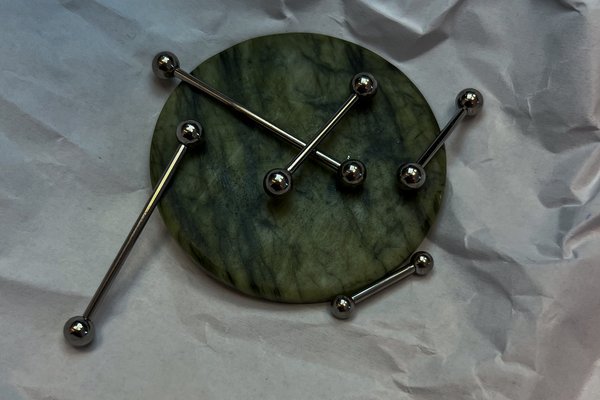
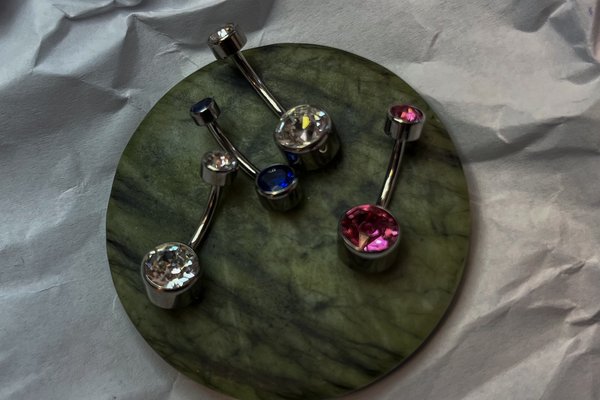
Piercing Studios
At VEAN, we go beyond basic standards.
We provide only certified, implant-grade titanium jewelry that has been sterilized and inspected before use. Our studios are equipped with professional tools, and our staff are trained to select jewelry that fits not just your style, but your anatomy and lifestyle.
We ensure your experience is clean, informed, and personalized — from jewelry selection to post-care advice.
Final Thoughts: Titanium Is the Smart, Safe Choice
When it comes to body piercing, the material you choose will influence your experience long after you leave the studio. Titanium provides a unique combination of safety, comfort, and aesthetic flexibility that no other metal can match.
Whether you’re getting your first piercing or your tenth, make the smart decision for your body. Choose jewelry that helps you heal, look great, and feel confident — choose titanium.
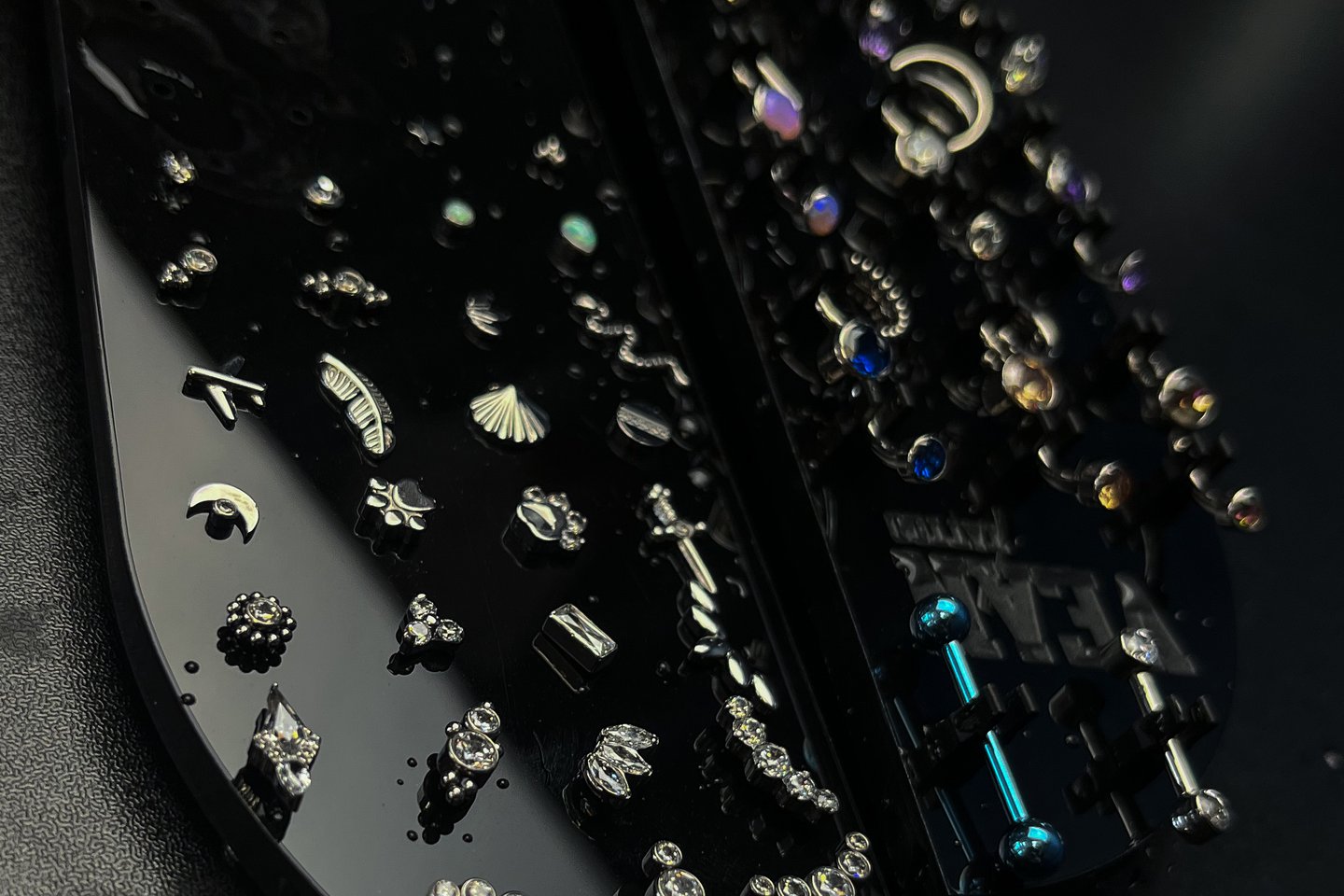


 Make a sketch in the AI VEAN TATTOO generator
Make a sketch in the AI VEAN TATTOO generator




